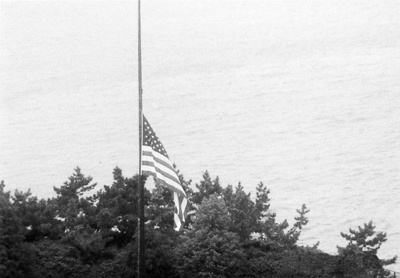All Nonfiction
- Bullying
- Books
- Academic
- Author Interviews
- Celebrity interviews
- College Articles
- College Essays
- Educator of the Year
- Heroes
- Interviews
- Memoir
- Personal Experience
- Sports
- Travel & Culture
All Opinions
- Bullying
- Current Events / Politics
- Discrimination
- Drugs / Alcohol / Smoking
- Entertainment / Celebrities
- Environment
- Love / Relationships
- Movies / Music / TV
- Pop Culture / Trends
- School / College
- Social Issues / Civics
- Spirituality / Religion
- Sports / Hobbies
All Hot Topics
- Bullying
- Community Service
- Environment
- Health
- Letters to the Editor
- Pride & Prejudice
- What Matters
- Back
Summer Guide
- Program Links
- Program Reviews
- Back
College Guide
- College Links
- College Reviews
- College Essays
- College Articles
- Back
From Germany to the U.S.
“It was a cold winter’s day. I was sitting by the fireplace in my small farmhouse when I heard the announcement on the radio.” She began to speak as she sat up in her chair eager to tell more. “I still remember that day clearly. It was the day my family realized we could go to the United States.”
It was the year 1950 when the Dieball family heard an announcement on the German radio about a sponsorship program starting in the US. The Lutheran Church was offering the program for anyone from Europe to come over to the US, as long as one person in the family had a job.
“We had already tried to enter into the United States for better farming, but it didn’t work.” She continued on, still eager to reveal her story. “There was better farming in the United States than our little farm, so my father wanted to move there to start a better life for me and my family.”
Originally, she had an uncle who lived in St Louis that helped try to get her and her family into the US. He filled out immigration papers for them and did everything they needed to move. However, her second brother was born before they had planned to move making it much more expensive to immigrate into the US. Therefore, they stayed in Germany and continued to work their farm.
She began to slump back down into her chair as if she could remember the disappointment she had. “Working a small farm that could barely grow half as much as we planted, it was hard for us to make enough money to be able to go to the United States with only four people going. With five people, it was impossible.”
This is when they heard about the sponsorship program. All they needed was a job already set up with their sponsor, and they could come into the US. Her father got a job working for a farmer in Jackson, Minnesota. His goal was to become a farmer in the US, and that was what he was going to do. Finally, on Sunday, January 13th, 1952 the Dieballs left Germany and headed on their way to the US.
Almost a week later on that next Friday, their ship landed, and they were in New York City. They had to wait in the ship until they were able to leave the upcoming Monday morning. After a day, they finally left New York and made their way to a very cold and snowy Jackson, Minnesota.
“Being from Germany, I was used to winter, but never in my life had I seen so much snow.” She laughed as she went on. “And boy was it cold.”
Along with getting used to the cold, snow filled winters, the Dieballs had another slight dilemma to get used to. They didn’t speak a word of English. The Lutheran Church that was in charge of the sponsorship program sent with them a translator from Milwaukee, Wisconsin to help her and her family. Her father was a good farmer and knew what he was doing, so for him it was not too difficult. However, for her and her two younger brothers, it was a little different.
When they moved to the US, she was only fifteen years old, along with her twelve and four year old brothers. Since none of them knew English, they were taught by their translator. She had been in school in Germany, but when her and her family moved, she did not go to school in the states. Therefore she was taught everything mostly by her translator.
“It was hard, but eventually I started to understand. Even small things like numbers were difficult for me to remember,” she said.
A year later in 1953 her and her family became citizens, and almost a year after that in 1954, she met the man she would later go on to marry. Her father went on to work on his very own farm in Minnesota, and much of her family still lives there and works on the farms. She eventually moved from Minnesota to California, due to her husband being in the navy. Now 78 years old, Frieda Palmer lives happily in her home in Milwaukee with her husband.
I’ve known Frieda my whole life. She was like a second mother to my dad, and she has been like a second grandmother to me. I always knew she was from Germany, but I never got to hear her full story until now.
“Do you ever want to go back and live in Germany again?” I asked her.
She said smiling with full confidence. “Never.”

Similar Articles
JOIN THE DISCUSSION
This article has 0 comments.
